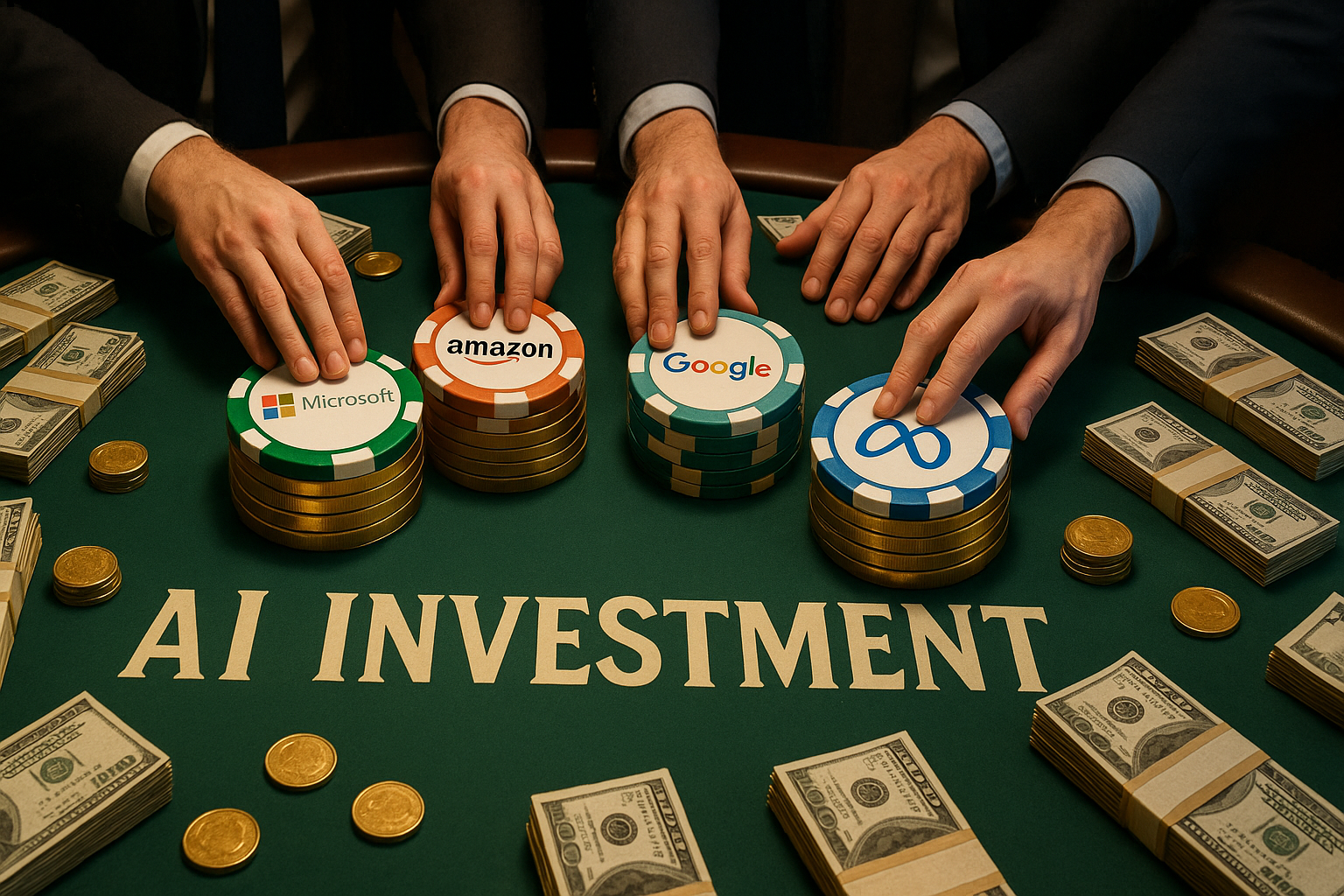Silicon Valley's biggest players have placed their bets—all on the same square. Microsoft, Amazon, Meta (let's be honest, it's still Facebook to most of us), and Google are wagering nearly a trillion dollars on artificial intelligence as their collective future.
A trillion dollars.
Let that number marinate for a moment. We're talking about the GDP of an entire developed nation being poured into technology that, thus far, has mastered writing second-rate poetry and occasionally forgetting the existence of entire European countries.
I've been covering tech investments since the dot-com bubble, and something about this particular frenzy feels... familiar. And not in a reassuring way.
The returns on these astronomical investments? Well, if you listen to quarterly earnings calls, you'll hear a lot of "strategic positioning" and "future-proofing" language. What you won't hear are concrete numbers justifying these expenditures.
Take Microsoft, the company that's gone all-in on AI with the subtlety of a poker player pushing their chips forward while winking at the camera. They've essentially duct-taped their Copilot AI to Office 365 and—surprise!—raised prices. Would anyone buy Copilot as a standalone product? About as likely as paying extra for Clippy's triumphant return. Yet in the magical world of corporate accounting, this gets tallied as "AI revenue" while customers essentially subsidize Satya Nadella's expensive technological infatuation.
When Emperors Go Shopping
There's a pattern I've observed over twenty-plus years of tech reporting that I call the "Emperor's New Tech" syndrome. It unfolds with depressing predictability:
First, CEOs make sweeping pronouncements about world-changing technology. Next, investors develop a collective fear of missing the next big thing. Then the checkbooks come out. After that? Creative accounting to justify the spending spree. Finally, years later, the quiet downgrading of those once-lofty projections.
Right now? We're watching stage three bleed into stage four. The spending is jaw-dropping, the revenue... not so much.
Google—a company that practically prints money through advertising—is seeing AI revenue that amounts to little more than a rounding error on its balance sheet. Meta seems primarily focused on using AI to show me even more precisely targeted ads for those hiking boots I glanced at two weeks ago (which, fine, I did end up buying). Amazon is weaving AI into AWS, but good luck finding the specific revenue line attributed to these enhancements.
Look, the disconnect is staggering. These companies aren't investing like they're developing promising technology; they're spending like AI is already a proven cash cow. It's architectural malpractice—building the skyscraper before knowing what business will occupy it.
We've Seen This Movie Before
The 1990s gave us companies burning venture capital based on "eyeballs" instead of profit. The blockchain/crypto mania promised to revolutionize everything from banking to voting systems, with results that were... less than transformative.
What makes today's AI bonfire different is the players. These aren't plucky startups with nothing to lose—they're some of the most profitable entities in human history, companies renowned for ruthless efficiency and data-driven decision making. Yet they're acting like freshman business majors after three Red Bulls.
(The cynic in me wonders if this isn't partly theatrics for Wall Street. No CEO wants to be the one who missed the next big thing. If everyone's making the same expensive mistake together, individual executives have plausible deniability when the returns fail to materialize.)
The Long View
What happens when we hit the decade mark? After each tech giant has sunk a trillion dollars into AI—a scenario that seems increasingly likely given current spending trajectories—what will they have to show for it?
I suspect we won't see complete failure. That's too simple. Instead, we'll probably witness a quiet scaling back of ambitions. AI will find its place as an enhancement to existing products rather than the revolution currently being promised. We'll get incrementally better search results, smarter recommendations, more efficient cloud operations—valuable improvements that nonetheless won't justify investments measured in trillions.
There's also a possibility that might send shivers down Silicon Valley spines: what if AI's most valuable applications aren't consumer-facing at all? Perhaps the real payoff will come in unsexy areas like supply chain optimization or medical diagnostics—places where a tiny efficiency improvement translates to enormous value but makes for boring keynote presentations.
At some point, financial gravity will reassert itself. The question of return on investment can't be deferred forever with vague promises of future transformation.
In the meantime, we're witnessing perhaps the greatest act of collective faith in business history: four of the world's most valuable companies betting their futures on technology whose profit potential remains mostly theoretical.
It's either the most brilliant long-term investment we've ever seen or the most expensive corporate delusion since the South Sea Bubble.
And I've been covering tech long enough to know which way I'd bet... though I'm also the kind of person who still thinks Elon overpaid for Twitter.
